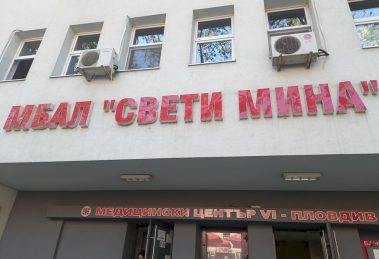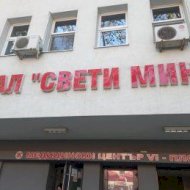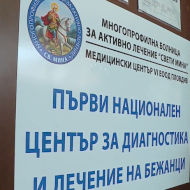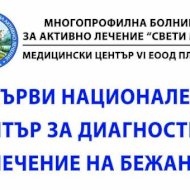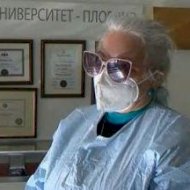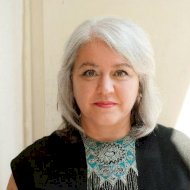Below you ll find a mail sent by Prof. Lyubima D. Despotova-Toleva MD, PhD to Wonca Europe
Shortly after the beginning of the war in Ukraine, many refugees fled their home and arrived in Bulgaria. Most of them mothers with children and elderly women, often bringing with them not only their own children, but also the lids of their relatives and friends. We could not remain indifferent to the tragedy of the Ukrainian refugees. Bulgaria very quickly responded to their accommodation needs and they were given shelter in hotels and other centers. It immediately became clear that there was one specific and acute need – the mothers, the elderly women and especially the children needed also medical attention. I sent an e-mail to the “Healthcare” Directorate of the Municipality of Plovdiv. Its director, Dr. Kalin Kalinov responded immediately and helped to open a center for diagnosis and treatment of Ukrainian refugees at VI Medical Center, located in the Municipal hospital "St. Mina" in Plovdiv. This was the first and so far, the only center for diagnosis and treatment of refugees in Bulgaria. My work there is completely voluntary, outside of my working hours. I consult both children and adults because as I have acknowledged specialties in pediatrics, general practice/family medicine and I am currently in process of finishing my specialization in pediatric cardiology. From the first day of the establishment of this center, mothers with children and elderly women are coming practically every day. Some of the children needed medical help and thorough examination and treatment immediately upon their arrival due to illnesses that occurred during the difficult and long journey from Ukraine to Bulgaria. Other volunteers swiftly organized an informal network in Plovdiv, helping the refugees with accommodation, food, even language courses. They contacted me for scheduling the medical consultations. Several days later I kindly asked some medical companies to donate some drugs and baby food, and in a very short time we received everything we needed according to my list. Local activist and famous publisher, Mr. Manol Peykov, organized donors who bought medicines and some sanitary materials. We give needed drugs and foods according to our prescription to those who come for examination and treatment. Surprisingly, most of the mothers have brought the medical documents of their children with them, including their vaccination schedule and status, which helps us a lot. Due to COVID-19 crisis we test all the patients with symptoms but interestingly, no test appeared positive. Some of the mothers and children have visited us several times. They seek not only medical help, but also understanding, support, and reassurance that the children are all right, that they will get help if and when they need it. They come even with the most minimal complaints, because they are worried about missing an illness which may worsen the condition. Some children needed specialized consultations and examinations, for instance, from a pediatric neurologist, pediatric psychologist, pediatric nephrologist, etc. Other females needed a cardiologist, oncologist, vascular surgeon and so on. When cases like those appear, I seek for colleagues who will voluntarily and free of charge provide the necessary medical assistance. Day by day, as the refugees acquired residency status, we began to refer them for enrolment to general practitioners so that they could use the Bulgarian health system.
In our center Ukrainian refugees receive highly qualified medical assistance and health care according to their needs. The Bulgarian National Radio, the Bulgarian National Television, other TV channels and electronic media quickly spread the information about our medical center, and refugees from other cities began reaching us, too. It was a very pleasant surprise for me that the Bulgarians who accepted and accommodated the refugees in other cities provided them with transport to Plovdiv for their scheduled medical consultations. The information also spread throughout the social media and many volunteers and refugees approached me directly. Practically, there are no barriers to providing medical assistance to refugees in this center, neither linguistic, nor organizational, or any other. “St. Mina” Municipal Hospital declares that in cases where hospitalization is necessary, they will admit patients to their wards at the expense of the hospital, and we all work voluntarily, without any payment. Sometimes the refugees need some specialized medical devices, and when we find them, they are usually paid by volunteers with donated money. It is obvious that problems can be solved quickly and substantively when there is a good will, understanding and cooperation. We will continue to volunteer as long as there is a need for this center to remain open.
Here are some links about our activity:
https://bnr.bg/post/101617114/

